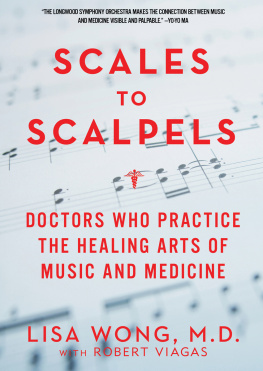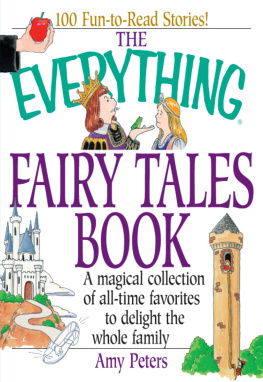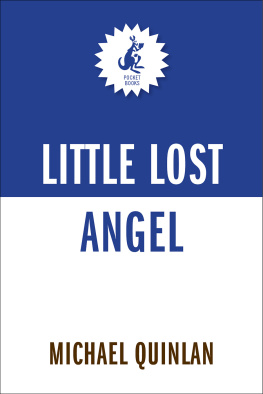Thank you for downloading this Simon & Schuster eBook.
Join our mailing list and get updates on new releases, deals, bonus content and other great books from Simon & Schuster.
C LICK H ERE T O S IGN U P
or visit us online to sign up at
eBookNews.SimonandSchuster.com
Contents
For my mother
clock ticker, noun.
A female in her mid- to late thirties who must find a way to take advantage of her remaining fertility before she loses the chance to become a mother.
She is scared,
Scared to run out of time
Bonnie Raitt, Nick of Time
Prologue
In the recovery room of a fertility clinic in midtown Manhattan, I popped open my eyes and wondered when my surgery would start. When I contracted my lower abdomen and felt my freshly tender ovaries, I realized it was already over.
Am I done? I called out to the nurses station.
Yes, youre done, a nurse responded. She handed me a Post-It note with the number 9 underlined twice.
Is that the number of eggs? I asked nervously. She nodded. As she left in search of Saltines and apple juice, I took a deep breath and felt a wave of relief wash over me. They got them, I said to myself. They got them out of me while I was still thirty-six. No matter what happened from now oninfertility, romantic disappointments, ambivalenceI had some good eggs stashed away.
The nurse handed me post-op instructions: No driving for the day. No aerobics or sex for two weeks. Call if I have a fever, nausea, abdominal pain, or heavy bleeding. Ten minutes later, I floated down the hallway to the locker room, where I flung off my hospital gown, booties, and cap and pulled my polo shirt and shorts over my bloated belly. I hoped my boyfriend would be waiting with coffee; I was dying for my first morning sip. He smiled when I emerged into the waiting room.
I introduced Paul to the woman at the front desk so I could be released. I took the coffee in one hand and his arm in the other as we passed the couples in the waiting room. They were here because they needed medical help to make a baby. I was here because I was still fertile.
I let Paul navigate the lights as we walked across Park Avenue. Along the way, I saw mothers strolling with babies strapped to their chests, fathers walking sons to the park, nannies steering toddlers on bikes. For the first time in a long time, I felt nothing for themnot the usual pang that twisted my stomach, not the dread that pounded my head, not the ache that seized my shoulders.
I just felt hungry. I stepped up my pace and asked Paul what we should have for lunch.
Introduction
There was one time in my life when I was grateful for the biological clock. I was thirty-two years old and summoning the courage to leave a relationship. After nearly eight years of living with a man I deeply loved, I wasnt miserable. I just wasnt happy.
We had been doing the stuff the advice books say youre never supposed to do. We punished each other with silence, criticized each others driving, made separate holiday plans, argued in public, and butted heads so fiercely about meals, budgets, sex, housework, exercise schedules, movie choices, and vacation destinations that it became easier to spend most of our free time apart.
We tried the standard fixes: we went to couples counseling, swapped lists of behaviors we were willing to change, and spoke in I feel statements. There were brief improvements, but the tension always returned, and I became increasingly certain that I did not want children with him. How could we agree on how to take care of another human being if we couldnt decide when to do laundry? I made sure never to miss my birth control pills.
I knew we had no future, but I also felt no urgency to overturn my life with a crushing, consuming breakup. There never seemed to be a good time, either. Who wanted to be alone during the holidays, the Fourth of July, the first day of fall? I would give it six more months, I told myself. Maybe we could read more books. Maybe we could try a new therapist. Maybe we could go on a long vacation. It wasnt all bad, I reminded myself.
Then that terrifying book came out. In the spring of 2002, Sylvia Ann Hewlett was detonating bombshells on nearly every talk show with Creating a Life: Professional Women and the Quest for Children . The message was clear: your fertility fades much sooner than you think; your eggs deteriorate dramatically after thirty-five and are pretty much fossils by your early forties. So listen up, all you clueless careerists! Youve got to make having a family a priority. Youd better think twice about all your indulgent plans for advanced degrees, foreign postings, and after-work cocktails. Otherwise youre going to break your heart and the bank pursuing futile in vitro fertilization (IVF) treatments in an attempt to snatch a child from the jaws of menopause. Thats not to mention the increased risk of having a baby with Down syndrome if you manage to get pregnant.
I joined my generation in a collective gasp. Now? I whined to myself. I had just finished graduate school and was trying to launch my career as a freelance journalist. Plus, I still had to break up, grieve, find a new apartment, move out, lose ten pounds, acquire new relationship skills, and try to meet someone else. Then I had to get engaged, marry, and make a baby. That left very little contingency for rebounds, bad judgment, and trouble becoming pregnant.
If everything went as planned, I could have my first baby at thirty-seven and maybe fit in a second by thirty-nine. My God! I exclaimed to my girlfriend over the phone. Ive already lost my third child!
Before Hewletts book, I had assumed that I would be a mother, just as I knew I would marry, buy a home, and at some point fit into those Oshkosh BGosh short overalls I bought two sizes too small in college. I sleepily went about my life and took comfort in the pleasant stupor that was someday . I had little sense there was an actual deadline and that it was looming. Life was challenging enough without God suddenly setting a timer.
Without knowing it, I had become a Clock Ticker, and my pleasant stupor was replaced by the loud hum of the clichd biological clock, which began to torment me like a clunky old air conditioner. My friends started having babies, and I was suddenly behind. I overheard my parents making excuses for me to their friends: Shes busy with her job. Shes a late bloomer. Shes picky . In the most discouraging sign, relatives stopped asking when I planned to get married and start a family, as if I had been relegated to being the Crazy Aunt at family gatherings.
There were statistics to prove you were not alone, and that you were a member of a swelling demographic of women who had delayed marriage and motherhood. Supposedly one in five women was waiting to start her family until after age thirty-five, a percentage that had increased nearly eight-fold since 1970. And for the first time in history, more children were born to women over thirty-five than to teenagers.
You saw enough older new mothers in your neighborhood to know the statistic was true, but secretly you still wondered if there was something wrong with you because life hadnt worked out for you the way it had for Everyone Else. You told yourself that there was nothing wrong with being the Last One Left. You were simply on a different path and would make good decisions for your future. But you still felt a little twinge of sadness every time you saw your single-line listing on a family reunion attendance list. Or shopped for boxed Christmas cards of New York City snow scenes because it seemed ridiculous to write a holiday letter about yourself. Or realized that you were one of a few friends from high school holiday get-togethers available to go out after 8 p.m.








